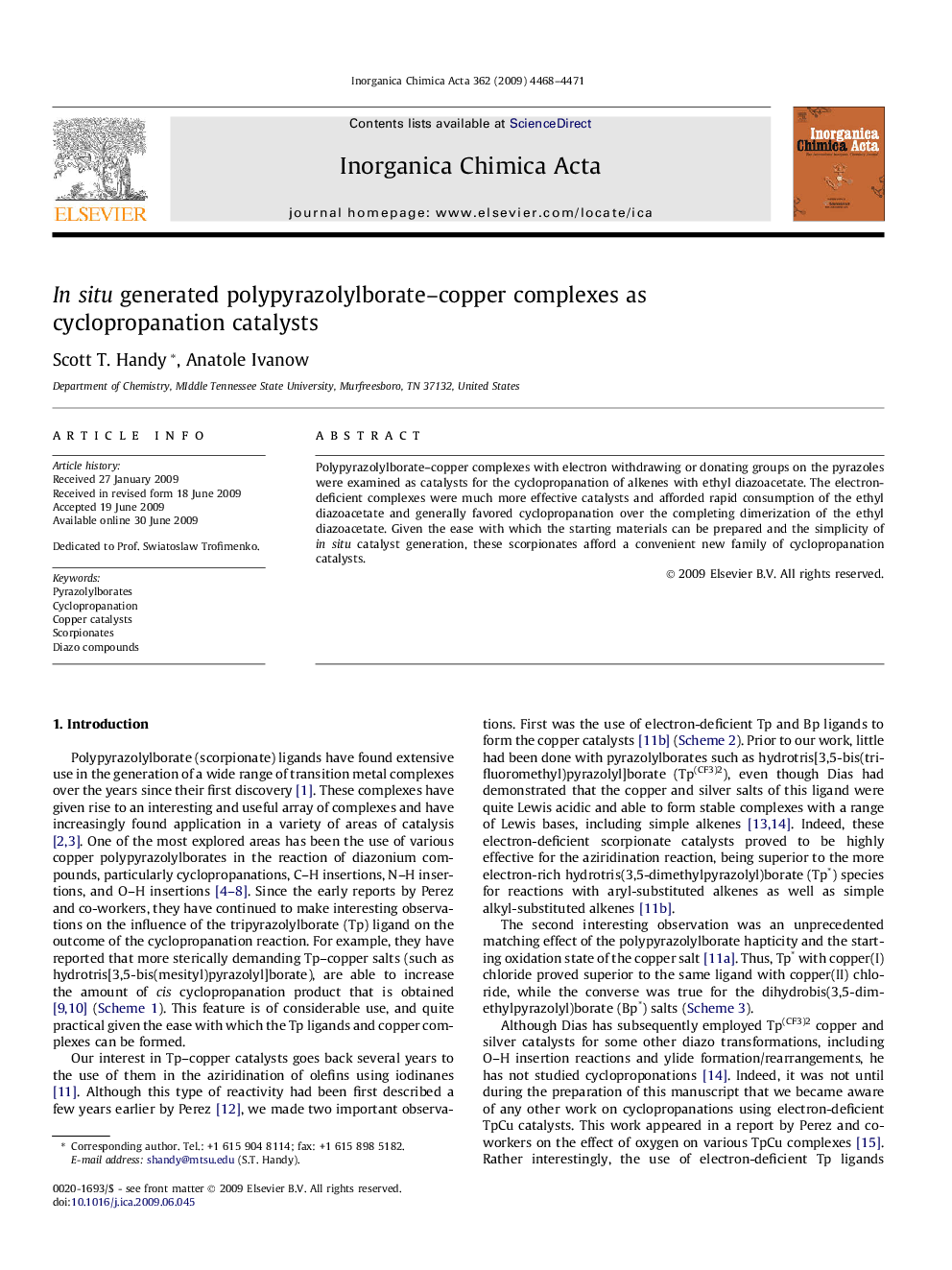| Article ID | Journal | Published Year | Pages | File Type |
|---|---|---|---|---|
| 1309563 | Inorganica Chimica Acta | 2009 | 4 Pages |
Polypyrazolylborate–copper complexes with electron withdrawing or donating groups on the pyrazoles were examined as catalysts for the cyclopropanation of alkenes with ethyl diazoacetate. The electron-deficient complexes were much more effective catalysts and afforded rapid consumption of the ethyl diazoacetate and generally favored cyclopropanation over the completing dimerization of the ethyl diazoacetate. Given the ease with which the starting materials can be prepared and the simplicity of in situ catalyst generation, these scorpionates afford a convenient new family of cyclopropanation catalysts.
Graphical abstractPolypyrazolylborate–copper complexes with electron withdrawing or donating groups on the pyrazoles were examined as catalysts for the cyclopropanation of alkenes with ethyl diazoacetate. The electron-deficient complexes were much more effective catalysts, affording rapid consumption of the ethyl diazoacetate and favoring cyclopropanation over the completing dimerization of the ethyl diazoacetate.Figure optionsDownload full-size imageDownload as PowerPoint slide
